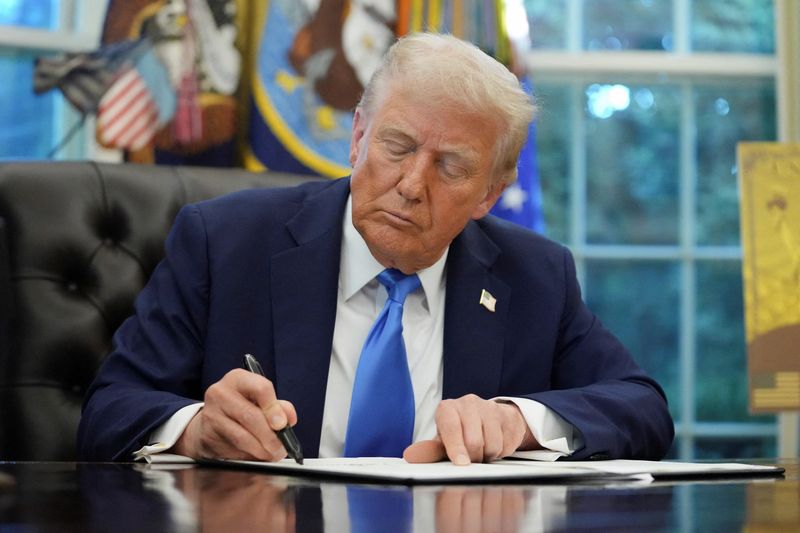Trump’s new visa policy inspires mostly sour response from tech firms
By Chris Prentice and Surbhi Misra
NEW YORK/BENGALURU (Reuters) -U.S. President Donald Trump‘s new visa fees for foreign workers drew widespread condemnation from technology executives, entrepreneurs and investors across social media, with just a few outliers, as many saw it as a major blow to a sector that contributed millions to his re-election campaign.
Technology executives and investors said the new fees could add millions of dollars in costs for companies and disproportionately hurt startups, which may not be able to afford visas as part of their strategy.
In a confusing set of announcements beginning late Friday, Trump and other White House officials said they would charge firms $100,000 apiece for H1-B worker temporary employment visas, used by many tech majors, including Amazon.com, Microsoft and Meta Platforms.
Many criticized the move and the chaotic roll-out that required the White House to clarify the hefty fees would be charged just once, not annually, and they would not apply to existing holders, including those who happened to be overseas at the time of the announcement.
Meta, Microsoft and Amazon did not immediately respond to requests for comment.
Most executives at the tech giants, many of whom have forged close relationships with the Trump White House since his return to office, have not commented publicly on the proposal, which could drastically change their system of attracting talent from countries such as India and China. But others weighed in.
“America’s edge has always been that we attract smart, ambitious people from everywhere,” said Esther Crawford, a former Twitter executive and investor who now works as director of product management at Meta, according to her LinkedIn profile.
“High-skilled immigrants don’t take from us, they build with us. Some of the best colleagues in my career have been H-1B holders chasing their own American dream.”
The Trump administration has cracked down on immigration on a number of levels, including stepped-up border security and raids that have largely targeted lower-skilled workers, many of whom are undocumented migrants.
Most recently, U.S. Immigration and Customs Enforcement raided a Georgia battery plant owned by South Korea’s Hyundai Motor that angered officials in Seoul, who have raised questions about the relationship with the United States.
Economists at Berenberg warned that the proposed visa fee hike could further burden a U.S. labor market already weakened by the lingering effects of Trump-era trade policies. While artificial intelligence may help alleviate some staffing shortages, analysts cautioned that rising costs could pressure companies and eventually affect their clients.


